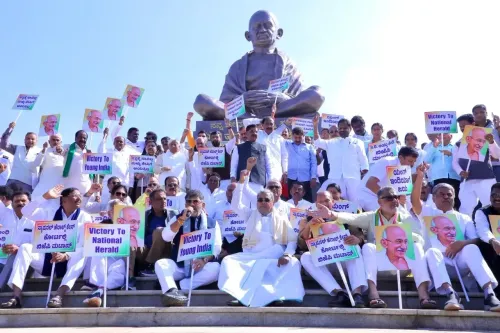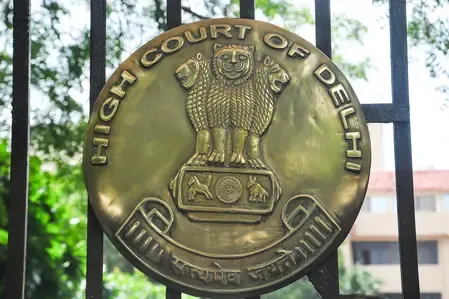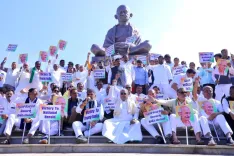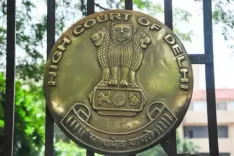BJP's Bommai Accuses Congress of Waqf Property Encroachment
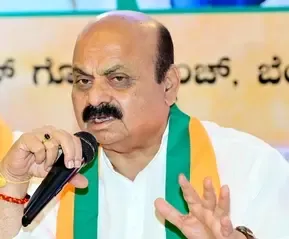
Synopsis
Key Takeaways
- Basavaraj Bommai alleges Congress encroachment on Waqf properties.
- The Waqf Bill has been amended multiple times since its introduction.
- Legal disputes concerning Waqf properties are prevalent.
- The Revenue Act should apply equally to all communities.
- Support for amendments comes from various religious communities.
Bengaluru, April 2 (NationPress) The former Chief Minister and BJP MP, Basavaraj Bommai, claimed on Wednesday that the Congress party has unlawfully occupied Waqf properties and is resisting the amendment Bill to conceal this issue.
Speaking to reporters in New Delhi, he highlighted that the Waqf Bill was first introduced in the 1950s and underwent amendments in 1990, 2013, with the latest changes not being an unprecedented occurrence.
Before 2013, a committee led by former Union Minister K. Rahman Khan made numerous recommendations, which Bommai noted were partially adopted by the then UPA government, leaving other key suggestions unaddressed.
He asserted that the country's legal framework is extensive and the Constitution holds supreme authority. Nevertheless, the amendments from 1990 and 2013 positioned Waqf above other laws, inhibiting Supreme Court intervention.
The purpose of the current amendment is to correct this imbalance.
Bommai pointed out the existence of various legal disputes involving Waqf properties.
“Properties owned by Muslims have been assigned to Waqf, and in Karnataka, a significant number of Waqf properties have fallen under the jurisdiction of Congress leaders,” he stated.
He stressed that for all other communities, the Revenue Act is deemed paramount, yet this principle has not been consistently applied to Waqf properties.
He maintained that the Revenue Act should be the highest law for everyone.
Bommai mentioned that the Joint Parliamentary Committee had engaged in thorough discussions and gathered public feedback nationwide.
Communities such as Muslims, Christians, and the Ajmer Dargah administration have expressed support for the proposed amendments, he noted.
Bommai assured that undisputed Waqf properties would remain Waqf assets, and the amendments are in line with the nation’s legal structure.
On the Congress' criticism regarding the inclusion of Hindus in the Muslim Board, Bommai responded that several temples in the coastal region, under the Muzrai Department, have had Muslim administrators.


